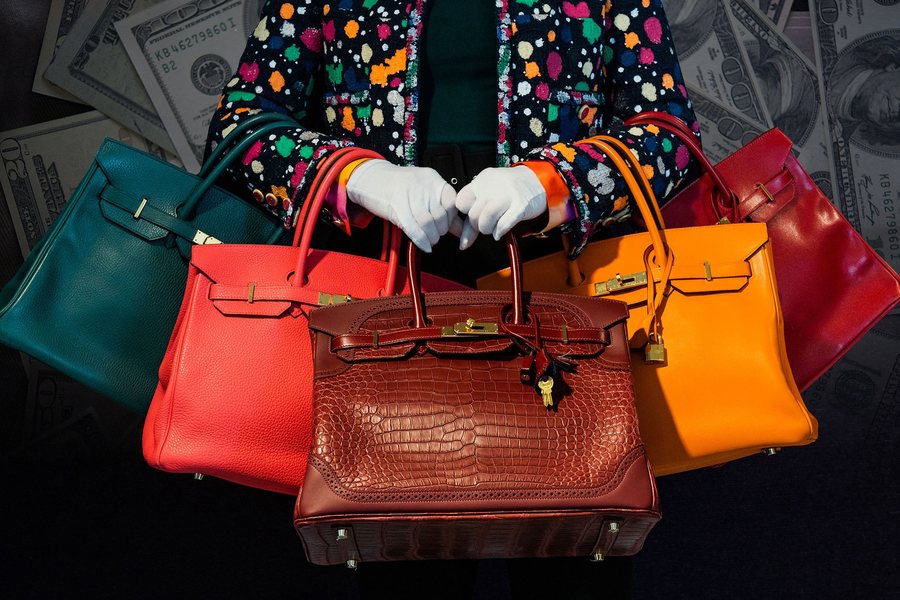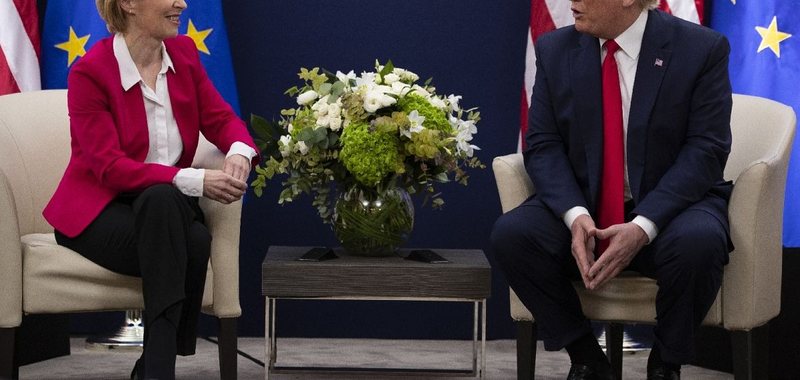Will the global luxury goods market shrink in 2025 due to Trump's tariffs?

Global sales of personal luxury goods are forecast to contract in 2025 for the first time since the Great Recession, according to a study by consultancy Bain published on Wednesday. The outlook could worsen if the sector is hit by tariffs promised by Donald Trump.
"This could be a nightmare if implemented," Claudia D'Arpizio, co-author of the study for the Italian luxury manufacturers association Altagamma, told The Associated Press. European brands can end up being super expensive in an already expensive environment.
Trump has promised tariffs of up to 20% on imports, saying it would create factory jobs, shrink the federal deficit and lower food prices.
While the study did not address the potential impact of the tariffs, D'Arpizio said the impact on European luxury manufacturers will depend on how the tariffs are implemented in the category, if at all. She noted that the lack of American luxury substitutes could lead to an exception.
Any negative impact could also be offset by moving production to the United States, or by higher sales to American tourists in Europe.
The United States is the second-largest luxury market after Europe, worth about 100 billion euros ($106 billion), or nearly a third of all global sales of high-end apparel, leather goods and footwear. .
Sales of luxury goods are forecast to fall 2% to 363 billion euros ($385 billion) next year, from 369 billion euros expected in 2024, due to large price increases imposed by brands and global turmoil, it said. Bain.
The sector made a quick comeback from the COVID-19 pandemic, surpassing 2019 sales through 2022, largely thanks to pent-up spending that was delayed by the lockdowns. Even a modest decline next year would leave the market 28% higher than it was in 2019 and two and a half times the Great Recession low of 2008.
Social and political turmoil, including wars and national elections, have eroded consumer confidence, D'Arpizio said. In addition, brands' strategy to raise prices by focusing on more "subtle luxury" that often lacks innovation has "brought a strong negative impact on willingness to buy," even among affluent consumers, it said. she.
The creativity crisis is also driving away Gen-Z shoppers, many of them now in their 20s, the study found. The result is that the luxury market has shrunk by 50 million customers, to about 250 million to 360 million, as the luxury base shrinks for the first time.
"We have 50 million fewer customers because they can't afford to buy, or they don't want to because they don't think there's enough juice," D'Arpizio said.

Will the Digital Euro strengthen financial security?
The digital euro is being considered by the European Central Bank as a new payment method available on a reloadable card, a digital wallet or a mobile phone......

To keep US support for Ukraine under Trump, the EU invokes China!
In an effort to keep U.S. support for Ukraine high under the incoming Trump administration, Brussels is now increasingly linking the fight against China's......

Solar energy from space: Iceland could be the first country in the world to achieve this!
By 2030, Iceland could be the first country in the world to receive photovoltaic energy directly from space. A pioneering project, born out of collaboration......

Malay: Digitization of the banking system, a necessity - "Albania must harmonize fiscal and monetary policies with the EU"
Digitization of the banking sector and payment systems, focusing on the role of digital banking in promoting economic growth, was the other focus of the Bank......

US dollar hits 6-month high as US inflation comes into focus!
The US dollar hit a fresh 6-month high against other major currencies on Wednesday and the Japanese yen fell to its lowest level since July, boosted by......

DPSHTRR activates young people for innovative ideas - "E-Circulation" winning project, how will tools be monitored in real time?
The General Directorate of Road Transport Services held a competition with the theme "Transport, Innovation and Safety", where the focus was the integration......

P/budget 2025, Denaj: Increase support with subsidies oriented to the effectiveness of the scheme, formalization of the agricultural economy and EU directives
The Minister of Agriculture and Rural Development, Anila Denaj, presented the 2025 draft budget for the agriculture sector to the Parliamentary Committee on......

Albania is affected by rain, snow and storms - Military service: Location in the southeast of the country
Albania will be affected this Thursday by unstable weather. The Military Meteorological Service announces that rain is expected to be present in the first......


















